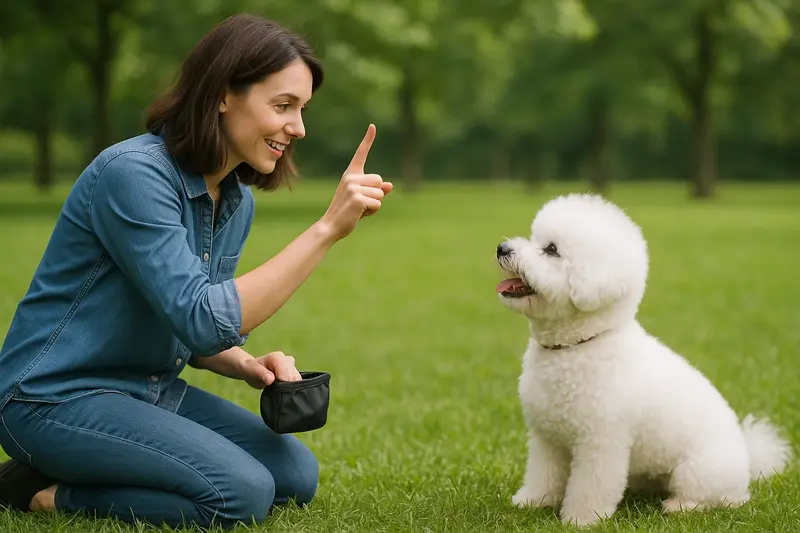The Bichon Frise, known for its fluffy white coat, affectionate nature, and lively temperament, makes an excellent companion dog. However, without proper training, its energy and stubbornness can lead to behavioral challenges. This article explores effective training strategies for Bichons from a scientific animal behavior standpoint, ensuring a well-adjusted and happy pet.
Bichons are quick learners but may exhibit selective listening and independence. Consistent reinforcement is key.
They thrive on attention and companionship, making positive reinforcement training especially effective.
Their curious nature makes them prone to distractions; structured sessions are essential.
Housebreaking
Leash manners
Basic obedience (sit, stay, come)
Social skills
High-value treats
Leash and collar/harness
Clicker (optional)
Quiet, distraction-free space
Routine Is Key: Take the dog out after meals, naps, and play
Immediate Reward: Praise or treat right after successful elimination
Avoid Punishment: Focus on prevention and redirection
Sit: Use a treat to lure the nose upward and back until the dog sits naturally
Stay: Start with short durations and gradually increase time and distance
Come: Use a cheerful voice and rewards when your Bichon approaches

Identify Triggers: Strangers, doorbells, boredom
Redirection Techniques: Use toys, cues, or training exercises
"Quiet" Command: Pair with rewards to reinforce calmness
Offer appropriate chew toys
If bitten during play, yelp and walk away to show disapproval
Expose the puppy to people, dogs, sounds, and surfaces between 3–12 weeks of age
Encourage exploration with positive reinforcement
Use praise, treats, or toys to encourage desired behavior
Avoid yelling or physical punishment
5–10 minutes per session, multiple times a day
Use the same cues and rules among all family members
Reward must follow behavior immediately
Tailor pacing based on personality and learning speed
Be patient and forgiving
Define off-limit areas like the kitchen
Teach commands like "no" and "off"
Train walking calmly on a leash
Introduce calmly to strangers and dogs
Gradually desensitize to noise and movement
Teach paw shakes, roll over, or fetch
Engage their minds to prevent boredom-related behaviors
Increase treat value
Use novel training settings to regain interest
Evaluate session length and engagement
Return to easier tasks to build confidence
Practice in various environments
Add distractions gradually to improve reliability
Despite their small size, Bichons require structured, compassionate training to reach their full potential. By applying science-backed strategies rooted in positive reinforcement and behavioral understanding, owners can foster a deep bond and develop a confident, well-mannered dog. Patience, consistency, and love are the keys to successful Bichon training.
animal tags: bichon frise
We created this article in conjunction with AI technology, then made sure it was fact-checked and edited by a Animals Top editor.